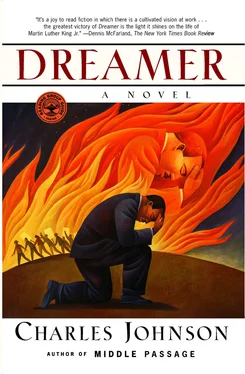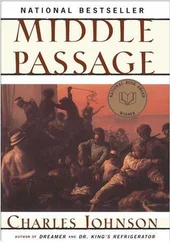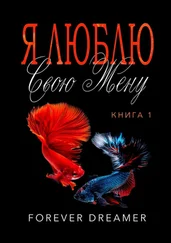Acknowledgment is gratefully made to the books and people without whom this novel could not have been written. Of special importance are Stephen B. Oates’s superb Let the Trumpet Sound, David L. Lewis’s King: A Critical Biography, Lerone Bennett Jr.’s What Manner of Man, Coretta Scott King’s My Life with Martin Luther King, Jr., James H. Cone’s Martin & Malcolm & America, John J. Ansbro’s Martin Luther King, Jr.: The Making of a Mind, Keith D. Miller’s Voice of Deliverance, David Garrow’s three-volume Martin Luther King, Jr. and the Civil Rights Movement, Mark Lane’s Code Name Zorro, James Earl Ray’s Who Killed Martin Luther King? John A. Williams’s The King God Didn’t Save, Julius Lester’s Search for the New Land, Noel Leo Erskine’s King Among the Theologians, volumes 1 and 2 of The Papers of Martin Luther King, Jr., and James R. Ralph Jr.’s “Home Truths: Dr. King and the Chicago Freedom Movement” ( American Visions, Aug./Sept. 1994).
I must also acknowledge my indebtedness to my agent, Anne Borchardt, for her brilliant advice; Dr. Rudolph Byrd for taking me to King’s birth home; poet Sharon Bryan for accompanying me to the King Memorial at the Lorraine Motel; Joyce Carol Oates for providing the Henry Adams definition of politics; Dr. Ricardo J. Quinones for placing in my hands a copy of his invaluable book, The Changes of Cain; Eknath Easwaran for his voluminous writings on the life of the spirit; to Guy Murchie’s The Seven Mysteries of Life; philosopher Scott Kramer for helping me remember the ’60s; poet Ethelbert Miller and filmmaker Jon Dichter for spiritual support; Gray Cassidy for his martial-arts expertise; Janie Smith for her hours spent typing the manuscript; and my wife, Joan, for her bottomless knowledge about the Book.
MEISTER ECKHART
“The Pauper has to die before the Prince can be born.”
GENESIS 4:5
“But unto Cain and to his offering the Lord had not respect. And Cain was very wroth, and his countenance fell.”
MARTIN LUTHER KING JR., Strength to Love
“If you sow the seeds of violence in your struggle, unborn generations will reap the whirlwind of social disintegration.”
GENESIS 37:19-20
“Behold, this dreamer cometh. Come now therefore, and let us slay him, and cast him into one of the pits, and we will say: Some evil beast hath devoured him; and we shall see what will become of his dreams.”
In the Upsouth cities he visited, violence followed him like a biblical curse, but one step ahead of his assassins. Despite his clerical vows, or perhaps because of them (I am come to send fire on the earth, Luke 12:49), he walked through a world aflame. Chicago in the hundred-degree summer heat of 1966 was the site for the special form of crisis his wing of the Movement produced: families divided, fathers at the throats of their sons, brothers spilling each other’s blood. Unhappily, I have the eloquence of neither Guido the Angelic nor Teresa of Avila, and so with each halting sentence I pray for the words to demonstrate how this was the beginning of his northern crusade to undo the work of the Devil. This was the battlefield, a modern plain of Kurukshetra, where in the midst of a shooting war between Richard Daley’s police and black snipers on the West Side (two were dead, hundreds were in detention), he composed that electrifying speech, “A Knock at Midnight,” read for him by friends at St. Peter’s Cathedral, seeing how he was stretched so thin, there in Chicago, that he couldn’t fly as scheduled to Geneva and instead spent three hellish nights rushing from one burning slum to another, pleading until 4 A.M. with both armed camps for peace. It is … midnight in our world, and the darkness is so deep that we can hardly see which way to turn.
He was tired by the time the Movement reached the North. His life had always belonged to others. For ten years he’d been God’s athlete, traveling nearly eight million miles (one-fourth the distance to Mars) back and forth across a country as divided as it had been during the Civil War, giving thousands of speeches in churches where he was celebrated as the heir of Thoreau — or better as the North American mahatma (Great Soul), meeting with presidents and heads of state, performing more eulogies for the Movement’s martyrs than he cared to remember, leading his generals in the siege of one southern town after another, flying to Africa, then to India, and five years before to Oslo to accept the Nobel Peace Prize with a team of federal agents right on his heels, as they always were, closer even than his own heartbeat, he sometimes felt, though you had to wonder where they were and what the devil they were doing when that Harlem madwoman, Izola Curry, plunged a Japanese letter opener into his chest. Or when his Montgomery home was bombed, nearly killing his young wife and baby Yolanda.
More tired, acclaimed, hated, gaoled, and hunted than any other Negro in history, but living this close to death was as inevitable as his being ordained a minister when he was eighteen. No matter how he looked at it, his calling meant that from the moment he donned his robe the laws governing his life were different from those of the vast majority of men; indeed, it was no longer his life to do with as he pleased. The world owned him long before he could own himself. As it is with candles, so it was with him: the more light he gave, the less there was of him. Moreover, since the First World War the Army had sniffed something dangerous in his family, some blood-gift for subversion more radical than anything Lenin dreamed up in Moscow; they had watched his father and grandfather closely, and interfered with their lives just as they did his, as devoted to shaming him, discrediting him, and driving him from public life as he was to bringing his ever expanding congregation a bit closer to the Kingdom of God on earth. People always thought he was older than his thirty-seven years. In point of fact, he felt old. Centuries old, and looked over fifty in some photographs: washed by all waters. Sometimes late at night, when he couldn’t sleep before yet another early morning flight, and his leather suitcase from Paris lay packed on the table in yet another unfamiliar hotel room, and the memories came washing over him in waves — the poor living like chattel, children dynamited in a church, Watts burning for six days, the death threats spewing through the telephone at his wife — on those nights he wept for the blood spilled by his enemies, for his own life’s lost options, for the outrageous fragility of what he hoped to achieve in a world smothering in materialism, in the propaganda of sensation, in scientific marvels unmoored from any sense of morality, and he wondered, there in the darkness before the dawn of what might be his last day on earth, if he’d ever been young at all.
“Don’t go to Chicago,” his closest advisor said. “You can’t win there. You don’t know cities. Stay on your own turf.”
The enemy was more elusive, said Hosea Williams and the city’s famed pastor, Joseph H. Jackson. Not crude country sheriffs like “Bull” Connor, who fell tail over tin cup before the world’s cameras into the bully-buffoon role they scripted for him, or heavy-browed bigots like George Wallace, whose reactions made outstanding copy for the cause. In Chicago, the villains were faceless institutions: banks, real estate agents, insurance companies, and landlords hardly better off, in some cases, than their ghetto tenants. But this town, he knew, was the Up North equivalent of Birmingham. If they could triumph here, establishing a beachhead for satyagraha (truth force) in a brutal city with a murder rate of slightly more than two people per day, here in balkanized ethnic enclaves that spawned Al Capone and hardened street gangs like the Cobras, the Vice Lords, and the Black Stone Rangers, here in a city where Stokely Carmichael’s poorly timed hut inevitable cry for Black Power during their Mississippi march to support one of the South’s wounded heroes, James Meredith, opened a Pandora’s box of rage and rang deeper into black hearts than any appeal for love (he knew betrayal, a stab in the hack when he saw it, hut told Carmichael, “I’ve been used before”), then they could conquer any citadel of inequality in the world.
Читать дальше












